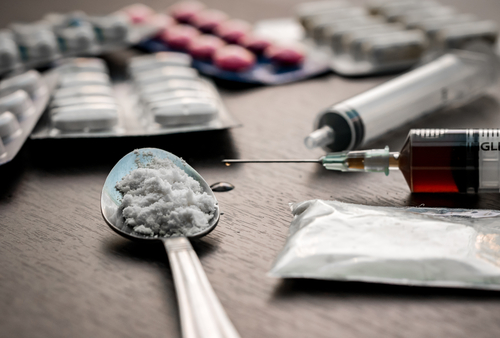
Yes, addiction, also referred to as substance use disorder, is a mental health disorder listed in the Diagnostic and Statistical Manual of Mental Disorders, Fifth Edition (DSM-5). It is characterized by compulsively engaging in rewarding stimuli (often, dangerous, risky, and/ or unhealthy) regardless of the ensuing negative consequences. Engaging in habitual substance abuse is a slippery slope that can quickly lead to addiction. The type of substance abused, the duration of one’s substance abuse, the potency of the drug abused, one’s personal health history, as well as one’s family health history will all contribute to the length of time it may take for an individual to develop an addiction. An individual that struggles with addiction will put his or her need for satisfying a drug craving above all else in his or her life. Therefore, addiction has the propensity to affect every aspect of an individual’s life. It is important to note that addiction does not develop overnight, nor should an individual expect his or her recovery from addiction to occur instantaneously. The treatment process for recovering from an addiction will require steadfast dedication and will be a lifelong commitment.
Habitual use of any substance can lead to increased tolerance, meaning an individual will require more of the substance (e.g., higher dosage, frequency of use, etc.) to achieve the same feeling. When an individual constantly abuses drugs and/ or alcohol, his or her body must make accommodations to properly function with the substance present. When a substance that one’s body has become accustomed to functioning with is absent or has less of the substance in his or her system, it will react accordingly. Adverse withdrawal symptoms will ensue, and the individual will be unable to function optimally. When an individual is unable to stop using a substance without experiencing withdrawal symptoms, he or she has reached some level of dependence. An individual that struggles with drug and/ or alcohol dependence and continues to abuse drugs and/ or alcohol increases his or her susceptibility to developing a full-blown addiction
Risk Factors
The precise reason behind why an individual develops an addiction remains unknown. There are, however, several risk factors that have been reported to increase one’s propensity for developing an addiction. According to the National Institute on Drug Abuse (NIH) these include environmental risk factors, genetics, drug of choice, method of use, and the age an individual started abusing drugs and/ or alcohol. Every individual is different and will have or lack various predispositions that can contribute to developing an addiction. Nevertheless, it is important to note that anyone can develop an addiction, regardless of social status, beliefs, or background.
Disclaimer:
The information above is provided for the use of informational purposes only. The above content is not to be substituted for professional advice, diagnosis, or treatment, as in no way is it intended as an attempt to practice medicine, give specific medical advice, including, without limitation, advice concerning the topic of mental health. As such, please do not use any material provided above to disregard professional advice or delay seeking treatment.
